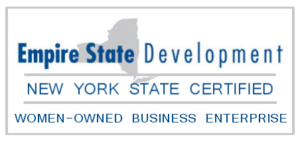By Reserved Decision, the presiding Worker’s Compensation Law Judge in the Watertown, NY hearing location found that no employer-employee relationship existed between the claimant and our client, or another individual who owns the property where the alleged injury occurred and for whom our client performs work. In this matter, the claimant filed a Workers’ Compensation claim against our client after alleging multiple injuries after she reportedly fell backwards in May 2019 while performing landscaping services on a specific property where our client was responsible for property management services. Our client did not maintain any Workers’ Compensation insurance as she operated a LLC with no employees under which she maintained her property management services. Our office was retained to defend the matter and immediately pursued an aggressive defense that there was no employee-employer relationship – i.e. claimant was an independent contractor and not an employee.
Several hearings occurred where multiple parties appeared to properly posture the claim before litigation began, including the owner of the property (our client’s employer) and the Uninsured Employers’ Fund. The parties then engaged in trials where the claimant, our client, and the property owner all testified in length. We also demanded that the claimant produce her tax documents from 2018 and 2019 in order to confirm her income from our client and the property owner – but more importantly from other individuals during the same time period she claimed “employment” by our client. We note that the claimant received a 1099 from our client in 2018 for her services, which included landscaping, gardening, and docent services at a museum operated on one of the properties managed by our client. Throughout lengthy testimony, the record was developed to reflect that while our client told the claimant what services to provide on a certain day, the claimant-maintained control over the manner in which to perform the work. Furthermore, the claimant would set her own hours (with no attendance requirements), use her personal vehicle to get to a specific properly, use mostly her own tools to perform the work, and then would submit an invoice for her services after the work was performed. Significantly, the record was established on the fact that the claimant performed similar services for others in 2018 and 2019 without needing permission to do so from our client or the property owner. The claimant also maintained her own business on the side during the relevant time periods developed in the record. The claimant was paid biweekly and no taxes were withheld from her payments.
Ultimately, the Judge relied upon the above record to find that no employer-employee relationship between the claimant and our client, or the property owner. The claim was disallowed.

